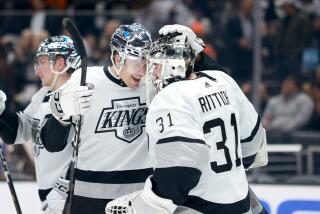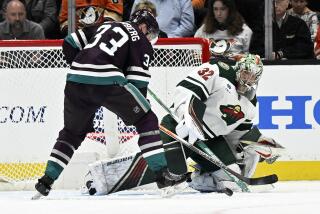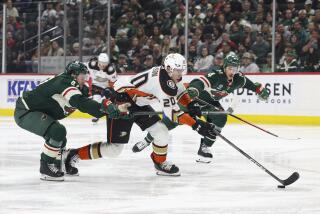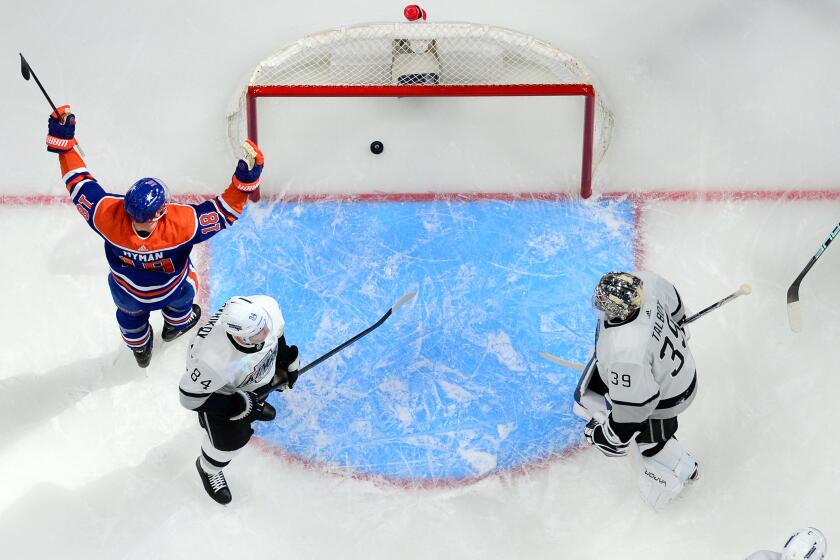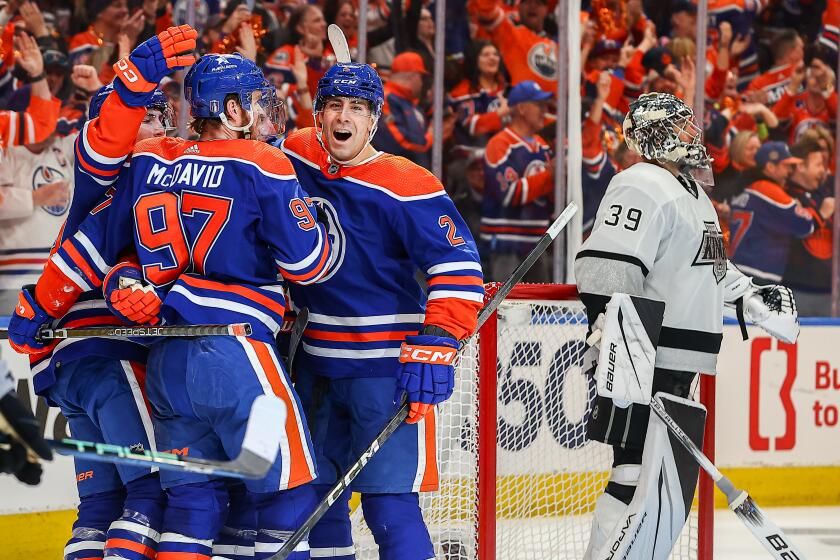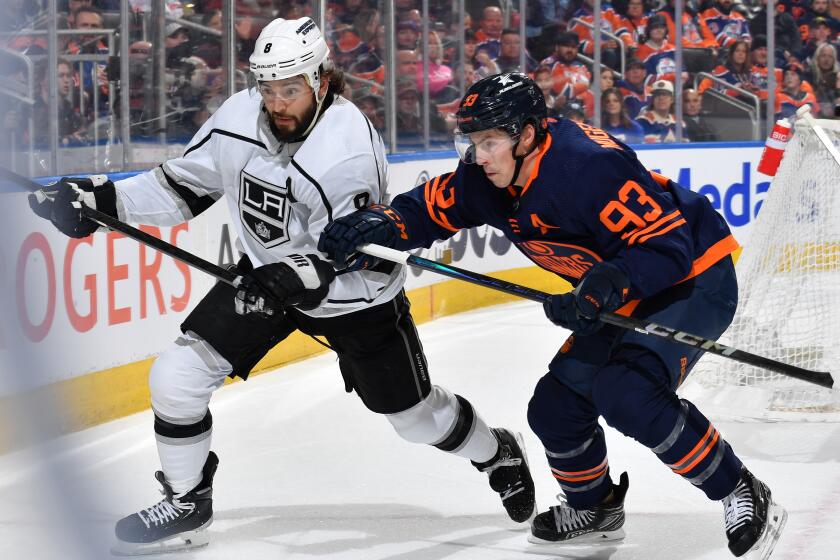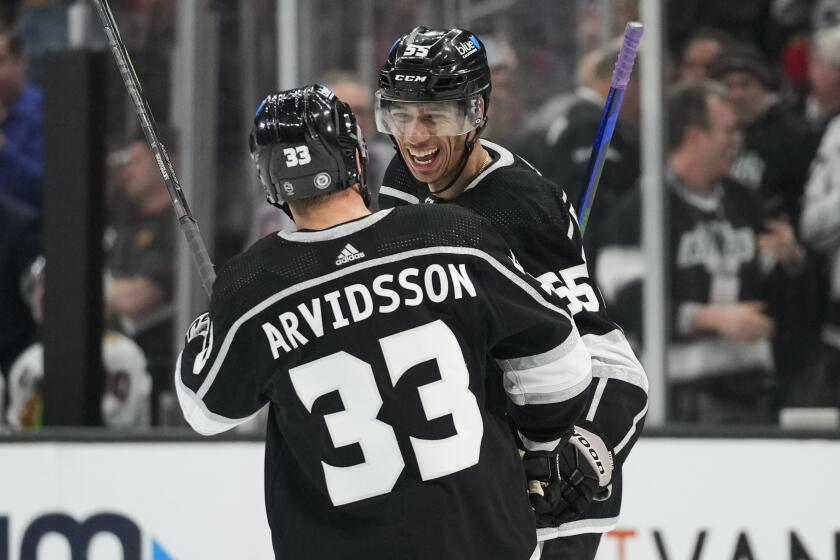Column: Predators take a page out of the Ducks playbook to advance to Stanley Cup Final
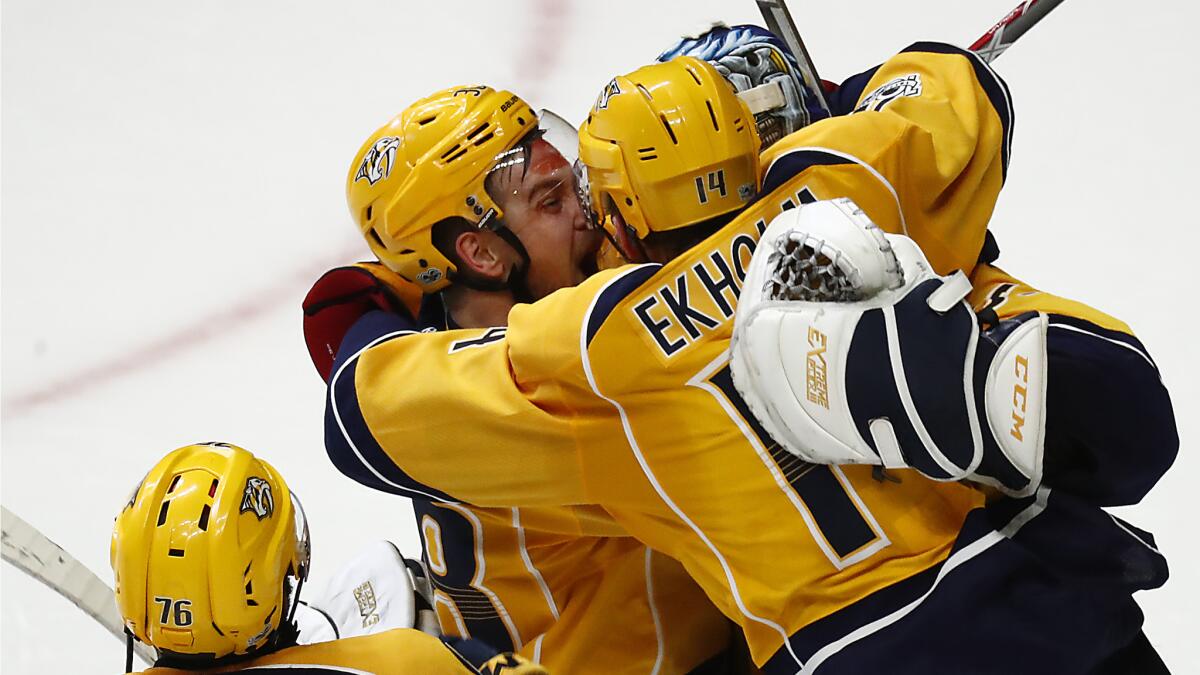
As it turned out, the Ducks didn’t have a monopoly on resilience in the conference finals of the Stanley Cup playoffs.
Until then — and even into the third period of what was their season finale — they had excelled at overcoming deficits, bowling over obstacles, and getting contributions from youngsters after established players suffered significant injuries. Then the Ducks met the Nashville Predators, who used that same formula but took it to a higher and more successful level.
In a six-game series that had mean overtones, the Predators gave nearly as good as they got, an aspect of their game that had always been missing. As the No. 8 seed they overcame their lack of home-ice advantage, bowled over the Chicago Blackhawks, St. Louis Blues and Ducks, and got clutch performances from unlikely sources as they advanced to their first Cup Final. With each game they became more confident and cohesive, a lot like the No. 8-seeded Kings did in winning the Cup in 2012.
“I feel like the last number of years we’ve been going that direction, building this team and having more depth,” Predators goaltender Pekka Rinne said Monday, after his team drove Music City into a state of twangy euphoria. “And with these guys and the adversity we’ve been facing the last few days, amazing response.”
He was too modest to say so but another reason the Predators prevailed is he gave them better goaltending than John Gibson and Jonathan Bernier gave the Ducks. It looms as a concern as the Ducks plan for a future that has some fuzzy edges to it.
They traded Frederik Andersen to Toronto last summer because they saw Gibson as their goalie of the future, and it’s easy to understand why. He’s 23, 6 feet 3, athletic, and capable of brilliance. But he also has been injured often enough that it’s reasonable to wonder if he’s going to get up each time he falls to the ice, and what shape he will be in once he uncoils.
Gibson, who has a history of hip and groin problems and missed 13 games this season because of lower-body injuries, hurt a hamstring and left Game 5 against Nashville on Saturday after one period. Bernier, staked to a 1-0 lead in the second period, gave up two goals on 18 shots and took the loss in the Predators’ 3-1 victory. Gibson skated on Sunday, leading coach Randy Carlyle to think he’d be able to play in Game 6. But Carlyle said that during Monday’s morning skate Gibson “basically indicated to us he was not available.” Bernier was the victim of a fluke deflection on Nashville’s first goal but couldn’t give his teammates a boost by making a game-changing save. They ran out of comebacks and out of ways to keep the puck out of their net.
“If you look at it, I think they got more dirty goals than we did,” Carlyle said of the Predators. “That was the difference in the games. And you know, you gotta give them credit.”
True enough. Nashville got fine performances from Colton Sissons (a Game 6 hat trick) and Frederick Gaudreau after centers Ryan Johansen and Mike Fisher were felled by injuries. The Ducks, who lost Patrick Eaves to a foot injury during the second round and Rickard Rakell to a lower-body injury in Game 5 against Nashville, needed one more show of resilience from their veterans but didn’t get it. They’ll be cleaning out their lockers at Honda Center on Thursday while the Predators prepare for the Cup Final.
For the Ducks, the window of opportunity is closing to win the Cup with 30-somethings Ryan Getzlaf, Ryan Kesler, Corey Perry and Kevin Bieksa as their leaders. Getzlaf, a force against Calgary and Edmonton, scored no goals in his last eight games. Kesler, who had 22 goals and 58 points in a Selke Trophy-finalist regular season, had one goal in the playoffs and none in his last 10 games. He dodged a question about whether he had played hurt. “I was out there so I was good enough to go,” he said Monday. Andrew Cogliano had no goals in his last six games and one in 17 playoff games. He had 16 during the regular season. It’s not on them alone, but they share the responsibility.
“A lot of guys are playing with a lot of stuff and those are the guys I’m proud of, getting shot up to play and they’re putting it on the line,” Cogliano said. “We’re missing two 30-goal scorers. At the end of the day, injuries happen. They’re missing their best player as well. They won the series. They’re a good team. I just don’t think they’re much better than us.”
The Predators were better where it mattered: in goal, in their new resilience, and in their depth. The Ducks don’t need a major overhaul and probably couldn’t attempt one, anyway, because of salary cap concerns. But they do need Gibson to be healthy, or that window of opportunity will slam shut and stay shut for a while.
Follow Helene Elliott on Twitter @helenenothelen
More to Read
Go beyond the scoreboard
Get the latest on L.A.'s teams in the daily Sports Report newsletter.
You may occasionally receive promotional content from the Los Angeles Times.
